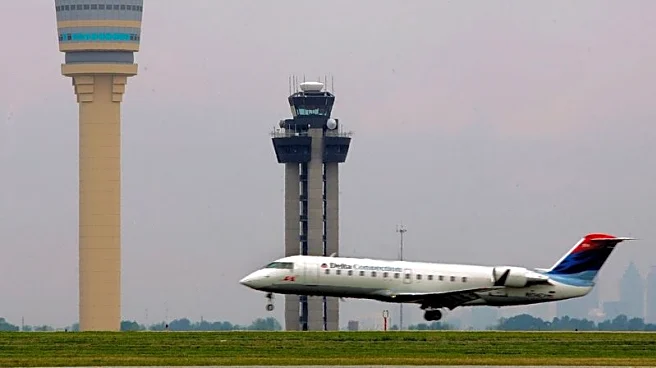By David Shepardson
WASHINGTON (Reuters) -The Federal Aviation Administration's $15 billion project to overhaul air traffic control has faced numerous delays, cost overruns and is less ambitious than what
was envisioned more than 20 years ago, according to a new report.
Through the end of 2024, the FAA has achieved only about 16% of the total expected benefits from the NextGen effort that started in 2003. "FAA has delivered a delayed, over budget, and less transformational NextGen than originally planned," said the Transportation Department Office of Inspector General, which released the report on Wednesday.
Many key programs and capabilities have been delayed to 2030 or beyond while upgrades were added at far fewer sites than originally expected.
The FAA did not immediately comment.
The $1 billion Terminal Flight Data Manager program, an automation tool introducing electronic flight strips to eliminate outdated paper ones and more efficiently move aircraft, is behind schedule and will not be added to a series of airports until 2030.
FAA also reduced the number of airport deployments by 45% and scaled back the program’s planned capabilities, while costs have increased by more than 20%.
Congress in July approved $12.5 billion to overhaul the aging U.S. air traffic control system and U.S. Transportation Secretary Sean Duffy on Wednesday called on Congress to award another $19 billion for the project.
The issues plaguing the FAA's air traffic control network have been years in the making, but public alarm has risen this year after a series of high-profile mishaps and near misses, as well as a catastrophic incident that killed 67 in January when a U.S. Army helicopter and a regional American Airlines jet collided.
The FAA is about 3,500 air traffic controllers short of targeted staffing levels. The persistent shortage has delayed flights even as many staffers work mandatory overtime and six-day weeks.
Overtime costs for air traffic controllers have jumped by more than 300% since 2013, according to a government report in June. Air traffic controllers last year logged 2.2 million hours of overtime, costing $200 million.
(Reporting by David Shepardson; Editing by Sergio Non)










